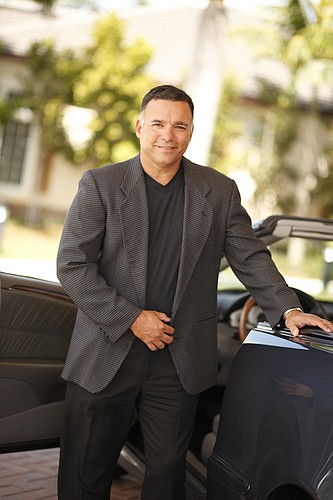- November 25, 2024
-
-
Loading

Loading

It hasn't been confirmed yet, but Rick Medwedeff suspects that the prize for being named the Marriott Hotels and Resorts General Manager of the Year is an all-expenses-paid vacation anywhere in the world.
Medwedeff, 53, is thinking someplace exotic in Asia would be nice. “It could be a Ritz,” he says with a grin (Ritz-Carlton is owned by Marriott International).
It's a fitting reward for Medwedeff, who celebrated 30 years of service to Marriott May 24. He's currently the general manager of the Marco Island Marriott Beach Resort, Golf Club & Spa, overseeing the 775 employees of the sprawling resort that underwent a $200 million renovation in 2007.
Medwedeff's introduction to the hospitality industry didn't start out glamorously. His first hotel job was as a night auditor at a Best Western while obtaining his degree in accounting and finance at the University of Maryland. When he graduated, he joined Marriott as an assistant controller at one of the chain's hotels in Des Moines, Iowa — not exactly the plum assignment for an eager young executive.
But Medwedeff gradually rose through the executive ranks, moving nine times over his career while raising a family. His first stint at the Marco Island resort near Naples was as director of finance and later as its resident manager. He later served as general manager of the Tampa Airport Marriott and then another resort in Georgia before returning to Marco Island as general manager in 2005.
The Business Review caught up with Medwedeff recently to discuss the management style that helped him win the award.
Learning from mistakes: “I have a very relaxed management style,” says Medwedeff. “I seek out great talent and get out of their way. It's OK if they make mistakes.”
No sales people on the property: Employees of the group-sales team don't live in Southwest Florida. Instead, they're in cities around the country, close to existing and prospective customers. “It makes no sense to have your sales people in the factory,” Medwedeff says. “I want them where the customers are.”
Boost the top line: “You've got to increase room rates or you'll have declining margins,” says Medwedeff. That's because hotels have fixed costs and cutting too much can drive guests away. “It's about driving the top line.”
Key to managing costs: “The best way is to increase the accuracy of your forecast,” Medwedeff says. With an accurate forecast, you can staff accordingly. There's no magic software to it. “It's having the right talent,” Medwedeff says. Longtime employees can more accurately forecast staffing needs because they know this intuitively.
How to keep good people: “They're stuck in paradise,” Medwedeff chuckles. When he recruited his management team in 2005, they purchased homes at the peak of the real estate boom. “They're underwater in their houses,” he says. “That's kept my team.” But Medwedeff
says he sees it as part of his job to challenge employees so they don't feel stuck in their careers. “They're never bored here,” he says. “There's a strong culture that they're needed here.”
Promote from within:“We love to promote from within the company,” Medwedeff says. He estimates that 90% of the general managers at Marriott hotels started in hourly jobs.
Dig into the numbers: Medwedeff and his team are always running the numbers. One critical gauge: man-hours per occupied room. Medwedeff generates a market-share analysis once a week to see how the hotel measures against the competition. He reviews a guest-satisfaction report every week and a sales-and-profit report every 28 days, scrutinizing every expense. When something appears to be amiss, he says, “You drill deeper to find out.”
All hands on deck: When the hotel is busy, the management pitches in to set up and take down tables and chairs for big events. “No one is exempt,” Medwedeff says. “We don't ask any associate to do anything we're not willing to do ourselves.”
Volunteer events: Medwedeff wants his staff to participate in charitable activities, such as building a house for Habitat for Humanity. These activities promote communication and eliminate barriers between management and staff.